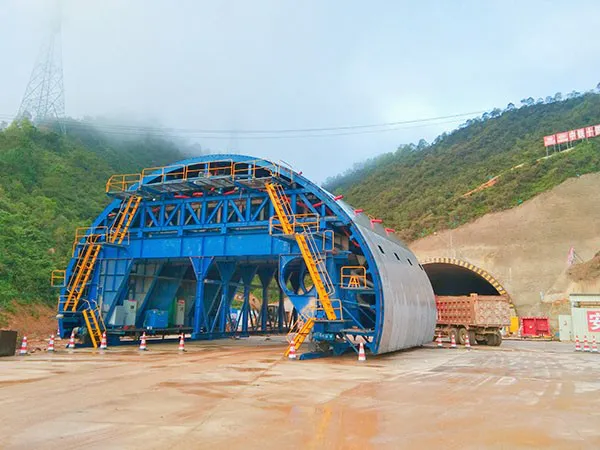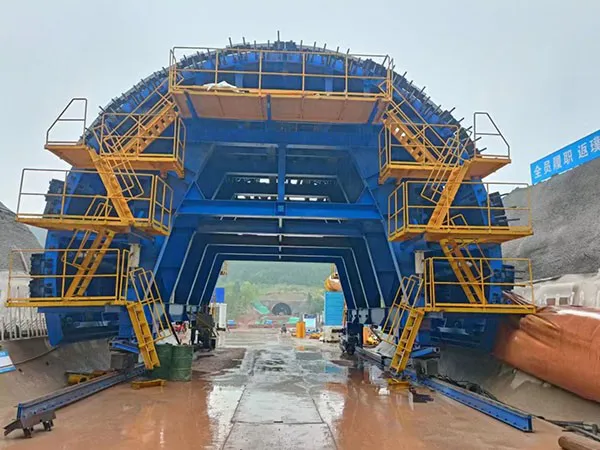Tunnel construction is one of the most complex and demanding sectors in civil engineering, requiring highly specialized machinery to operate efficiently. From tunnel boring machines (TBMs) and hydraulic excavators to conveyor systems, the performance and reliability of your equipment directly influence project timelines, safety, and overall costs. Implementing a strategic maintenance plan is not just a routine task—it’s a proactive approach to maximize uptime, reduce repair expenses, and ensure safe operations. Here are key maintenance tips for keeping your tunnel construction equipment in top condition.

Routine inspections are the cornerstone of equipment longevity. Focus on critical components such as hydraulic systems, bearings, motors, and track mechanisms. Early identification of wear or damage can prevent minor issues from escalating into costly failures. Using a digital inspection log can help track maintenance schedules, ensure compliance, and provide valuable data for long-term equipment management.
Tunnel construction equipment operates in harsh, dusty, and abrasive environments. Accumulated dirt and debris can accelerate wear on moving parts, including cutting heads, conveyors, and hydraulic components. Regular cleaning combined with manufacturer-recommended lubrication reduces friction, prevents overheating, and significantly extends the lifespan of machinery. Prioritizing cleanliness and lubrication is a small effort that pays off with fewer breakdowns and smoother operations.
Hydraulic systems are the backbone of most tunnel construction machinery. Regularly check fluid levels, inspect hoses and seals for leaks, and replace worn components immediately. Contaminated or degraded hydraulic fluid can lead to malfunctions and reduced efficiency, so routine fluid analysis and timely replacement are essential preventive measures.
Critical wear parts—such as cutter heads, drill bits, and conveyor belts—have a finite lifespan and require careful attention. Maintain a replacement schedule and keep essential spare parts on-site. Timely replacement ensures consistent machine performance, prevents unexpected downtime, and maintains safety standards for operators.

Even the most advanced tunnel construction machinery can fail if mishandled. Ensure operators are trained in proper handling techniques, load limits, and emergency procedures. Well-trained personnel can detect early signs of mechanical issues, respond effectively, and minimize the risk of severe equipment damage or project delays.
A structured preventive maintenance program is critical for long-term equipment reliability. Include detailed checklists, inspection schedules, and maintenance logs to ensure all machinery is serviced according to manufacturer guidelines. This proactive approach reduces reactive repairs, improves operational efficiency, and extends equipment lifespan.

Modern tunnel construction projects benefit greatly from technology-driven monitoring. IoT-based platforms and sensor systems provide real-time insights into machine performance, vibration levels, and operating temperatures. Early detection of anomalies allows maintenance teams to intervene before minor issues escalate, saving time and money.
Proper maintenance of tunnel construction equipment is more than routine—it’s a strategic investment in efficiency, cost reduction, and safety. By prioritizing regular inspections, cleaning and lubrication, operator training, preventive maintenance programs, and advanced monitoring technology, construction companies can minimize downtime, lower repair costs, and ensure projects are delivered on schedule. Well-maintained machinery not only operates at peak performance but also withstands the demanding conditions of tunnel construction, providing long-term value and reliability.
Gaofei
Address: 200m east of tulip garden, group 12 of zhangling community, hongshan street office, hongshan town, xigong district, Luoyang
Tel: +8616638856888
Contact: Gaofei Huang
Mobile: +86-18637923976
Phone: 0379-80881719/ 0379-60162687
QQ: 286827457
E-mail: gaofei@gf-bridge-tunnel.com